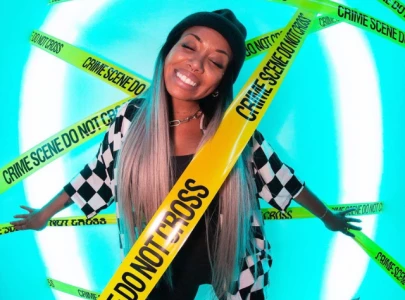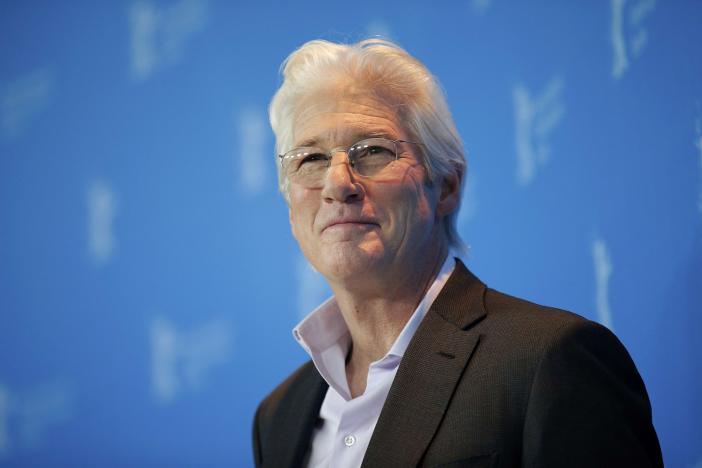
The speaking session began with incomparable input from Arif Hasan on evolution of cityscapes in Pakistan and how despite the PHDs and modern universities, things would not move forward in this country without development in ‘skills.’
This was followed by an interesting and interactive talk by Jabran Rafique, with contribution from his partner Omer Sheikh in the UK, on the use of digital cartography in Pakistan. Citing the Attabad lake incident, Rafique explained to an attentive audience how mapping via google tools can help create a data base for anybody to access, despite how secretive the government can be with information in Pakistan.
Intellectual mapping of the Urdu language was discussed by Ajmal Kamal, who is involved with the Urdu Project which aims to put written work in Urdu language, fiction and non-fiction, online.
Socio-linguist Dr Tariq Rehman gave a brief view of how important it is to accept the evolution of the Urdu language in Pakistan in modern times.
Communication Designer Saima Zaidi then took the attendees through an interpretation of national identity via the indigenous visual culture that has been prevalent here over for decades. Noor Zehra Raza then got a standing ovation for playing the ‘sagar veena,’ an instrument that was designed by her father Raza Kazim.
Dr Asher Hasan, then narrated a story of children from opposing class systems to explain how these very children are needed to end the socio-economic apartheid in Pakistan. He was followed by Mudassir Zia who shared his vision on how the youth can be the key to solve issues of unequal opportunity in the sphere of education and other public service sectors.
The fact that confused notions of development and ‘mimicking the donor’ in Pakistan exclude the majority of Pakistanis, who are mostly less than 20 years of age was Dr Nadeem ul Haq’s opinion. He reiterated the need for homegrown intellectual and community space for the youth.
Zubair K Bhatti, introduced as the ‘Corruption Buster,’ spoke about collective effort and challenges with regards to transparent governance. He was followed by Majid Nawaz who talked about how the narrative of Pakistan and Pakistanis needs to be in accordance with what was Jinnah’s dream.
Holding true to its concept of exposing ideas and contribution of Pakistanis not just to the country but the world, TEDx Lahore introduced Dr Aamir Khan. An epidemiologist and founding member of openxdata.org consortium, he shared the incredible work young Pakistanis working with him from Korangi in Karachi to Gilgit have done with Media Lab in MIT to the Harvard School of Business in the interest of public health and the prevention of diseases like Pneumonia and Tuberculosis. He also shared how cell phones have been used in researching in the field of health care.
The hero of this charged intellectual activity that took place in Lahore and was viewed via live streams in cafes in Lahore, Islamabad, Karachi and Netherlands was Dr Zeeshan Usmani . Dr Usmani was introduced as the ‘Counter Terrorism Planner.’ Dr Usmani had the crowd in fits, despite the grim seriousness of the area of his remarkable research, and he received the longest and biggest standing ovation of the night. His work focuses on ‘suicide bombings’ and the software designed by him can help doctors in treatment of patients of suicide attacks as well as the government and intelligence agencies to analyze and preempt terrorist activities. Dr Usmani shared why he began working in the sphere of terrorism and very aptly pointed out “So far we do not have a vision to solve the problem of terrorism in Pakistan.”
The event did get over shadowed by repetitive technical glitches, at times it did lose the audience’s interest and there was some light dozing off and snoring in a few corners. But, time and again there were a few talks which revitalized the attendees. On the whole the spirit of the event was predominantly national and was made saccharine sweet with love of the homeland. A short film called ‘building Pakistan’ was shown, which just showed the flag of Pakistan built with match boxes in green and white. This mood was reinforced by a cute goodie bag that read ‘WE NOT ME’ on it and contained a match used in the film, a WWF magazine, a Last Word discount coupon, a music CD and a plant for all the guests to go home and plant.
The night ended with a percussions jam, which was a surprise parting gift by the TEDx team.

1732271743-0/diddy-(45)1732271743-0-165x106.webp)



1732263788-0/BeFunk_§_]__-(30)1732263788-0.jpg)
1732270499-0/Express-Tribune-(7)1732270499-0-270x192.webp)
1732268955-0/BeFunk_§_]__-(33)1732268955-0.jpg)

1732267954-0/Express-Tribune-(6)1732267954-0-270x192.webp)







COMMENTS (16)
Comments are moderated and generally will be posted if they are on-topic and not abusive.
For more information, please see our Comments FAQ